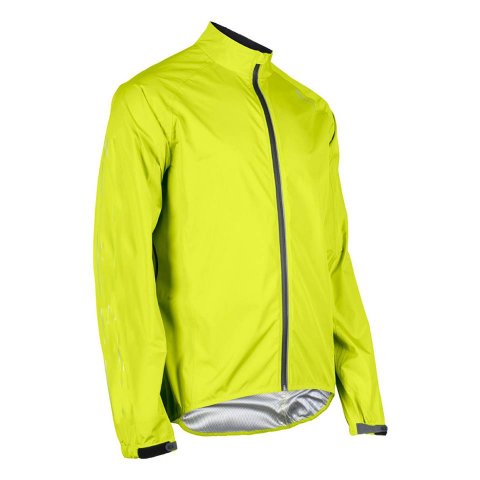
Here we are again, in the middle of the holiday season, where the focus of most people’s lives is on consumerism. We are compelled by custom and marketing messages to shop for our loved ones, our acquaintances, our co-workers, and miscellaneous people to whom we’re obligated to spread holiday cheer.
Dutifully, we all line up at Black Friday sales or sit at home on Cyber Monday looking for bargains. We shop relentlessly because it is the buying time of the year.
Of course, as a both a philosopher and a cyclist, I had to give this situation some additional thought. One day, as I involuntarily browsed through a shopping mall, I observed shoppers equating specific items with their intended recipients. In other words, they identified products which they felt suited the recipient in some way.
Either the product was something the recipient wanted, or it was an accoutrement of some hobby or interest the person had. It would come to play a part in their life, or more accurately, in their lifestyle.
My mind turned to cycling and all of the circular discussions among cyclists about what cycling should be. Some people think that cycling should be a normal part of everyday life with no special consideration to dress or gear. Other people see cycling as a specific activity requiring specific clothing and gear.
The self-proclaimed spokespeople of the former group have been very vocal in denouncing the use of cycling specific gear. They do not want such gear associated with cycling. And, some of them have gone so far as to create fashion trends related to cycling which encourage cyclists to ride in haute couture.
I’m not sure how this differs, theoretically, from the idea of wearing cycling specific clothing. One group is advocating for high fashion attire for cycling and the other group is advocating for functional attire for cycling. The difference lies in the cut of the clothing, not in the intent.
While I wouldn’t expect anyone to go out and buy special clothes to ride a bike, I don’t think that not wearing special clothes makes a cyclist superior in any way. Wearing cycling specific clothes also does not make anyone superior in any way.
Even though the non-cycling specific clothing proponents see their approach as showing a more “natural” side to cycling, they are missing a key point. This approach may make it more convenient for people to ride bikes, but it doesn’t make cycling an integral part of society. In fact, eschewing cycling specific gear makes cycling less viable as a part of society.
This struck me, as these things often do, while I was sitting in my car, stuck in horrendous Boston traffic. All of that hated gear represents something more than just a bunch of elitist snobs decked out in pseudo pro-racing attire. It represents something much larger than that, something that is growing, hopefully, in leaps and bounds.
What I am talking about is an industry. Cycling gear is evolving into an industry in a country where consumerism is king.
I know this because I like to shop local as often as possible and to preferentially buy American made goods. I do this for several reasons: it helps small businesses to stay afloat, it creates jobs in America, and because well-run American companies often produce higher quality merchandise.
Due to this predilection, I have bookmarked the addresses of many e-commerce sites owned by cycling companies which manufacture their products right here in the USA. Cycling gear, as this proves, opens up a sea of opportunity for entrepreneurial minds.
Some new cycling product designs start through crowd funding. For example, one very creative small business owner designed a product that while simple in design, was of great use to many cyclists. I am referring to the Bicycle Frame Handle which was funded through Kickstarter.
This product may not look like much, but to a creative cyclist it can be a godsend. I should know; I was a backer of this Kickstarter project. As such, I was one of the first to own a Bicycle Frame Handle.
If you have a little imagination, and have any occasion to carry your bike up a flight of stairs, you may be able to perceive how handy a device like this might be. As soon as I saw it, I could envision myself using it. Not only did I think it was useful, but I also liked the fact that it was handmade in the USA out of quality, non-synthetic material.
Other small businesses have sprung up around bicycling, such as an Oregon company called Wabi Woolens. They make quality wool cycling jerseys. Nothing beats wool for odor-free insulating clothing. And, it’s hard to find these days.
Creating jobs and quality products is just part of the picture. On a broader scale, the emergence of cycling gear manufacturers creates an industry which puts cycling on the same level as more prevalent activities.
For example, a lot of driving specific gear is designed for the automotive industry. Inside any automotive shop one can find all sorts of products related to owning and maintaining a car. We don’t consider people who use such products to be cheapening driving as a form of transportation; why should we think this way about cycling gear?
By making cycling part of our consumerist culture, through creating and selling gear specific to cycling, we make cycling a more integral part of society. Each year, when the holiday shopping frenzy begins, products designed specifically for cycling can be purchased for our loved ones, with loving care. In this manner, cycling will be gradually integrated into American life and will become a natural part of our lifestyle and our traditions.



